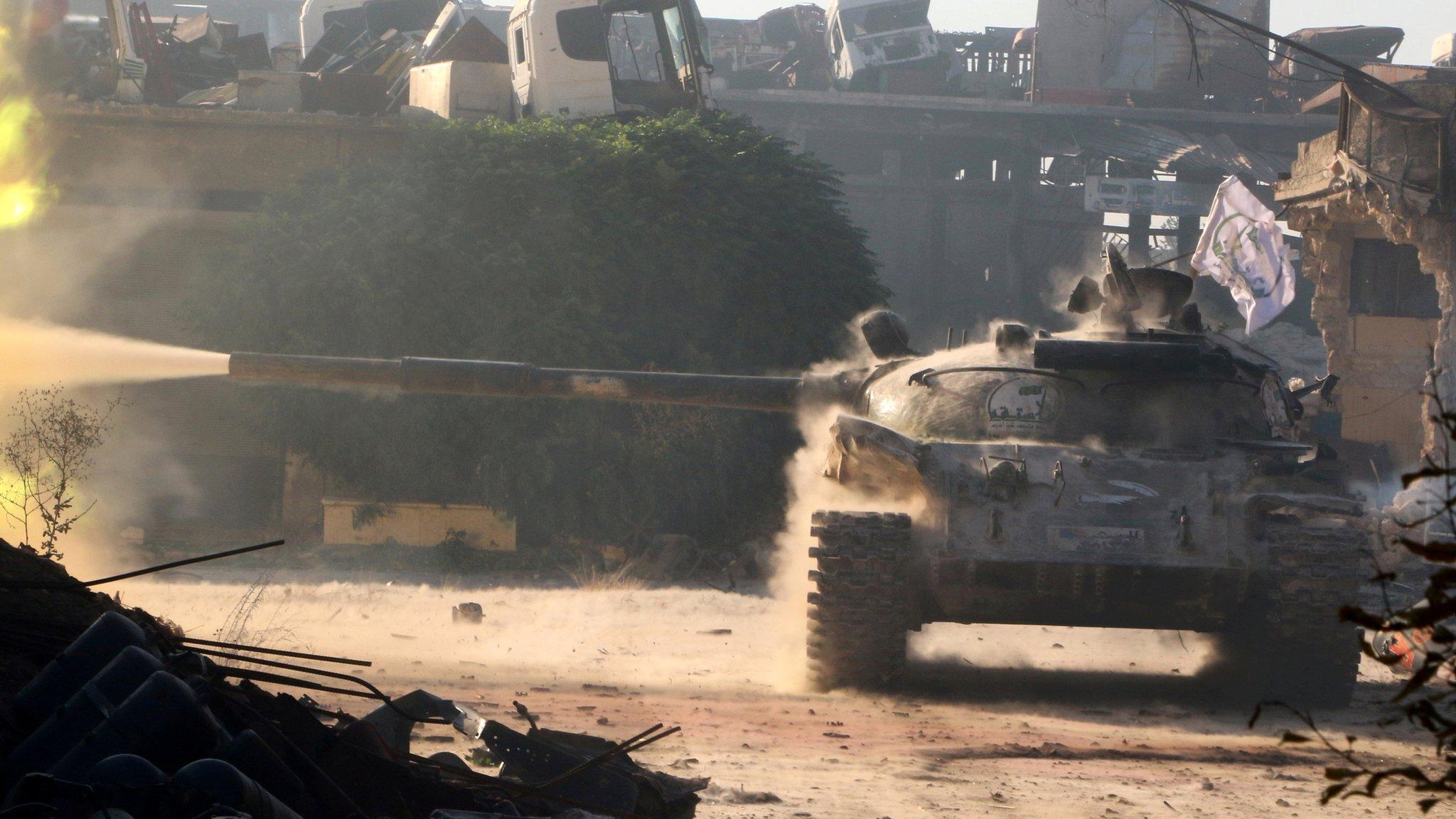Why are people still living in east Aleppo?
- Published
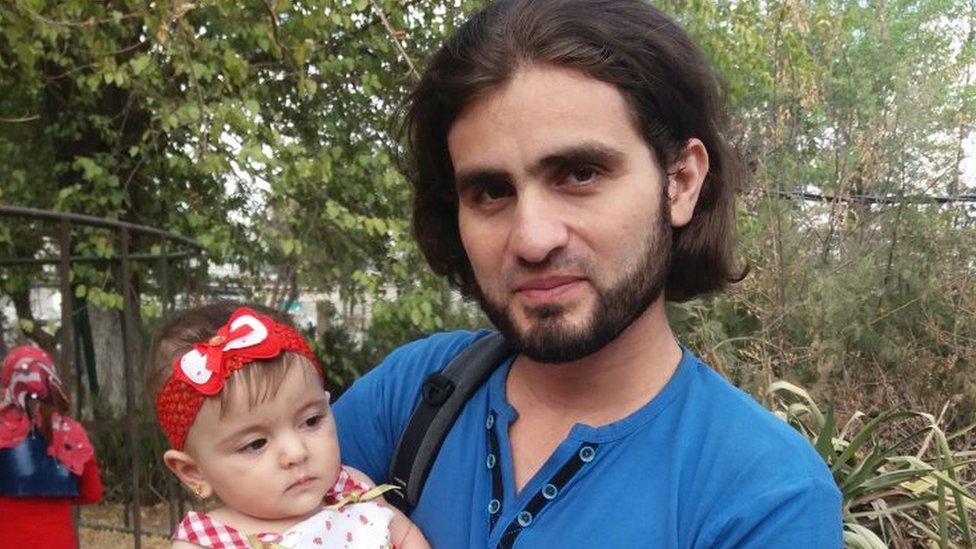
Abdulkafi with his daughter Lamar
A pause by Russia in carrying out air strikes on rebel-held eastern Aleppo has brought a brief respite for civilians and fighters under siege in the Syrian city.
At least 250,000 people have been trapped there almost continuously since pro-government forces encircled the area in July. Conditions are said to be appalling, with destruction on a massive scale.
Readers told us they wanted to know why people were still living there, so we put the question to residents through Facebook and WhatsApp.
Who lives in Aleppo?
Formerly Syria's economic hub, Aleppo had an estimated pre-war population of about two million. About one million people are now living in the west, in comparative safety.

Those trapped in the east are living in appalling conditions. The UN humanitarian chief Stephen O'Brien recently described the area as "the apex of horror".
Food and fuel are running out and basic infrastructure and health care have been obliterated.
The rebels have retaliated by shelling the west - resulting in the deaths of civilians there - but this is on a smaller scale.
Why haven't people fled east Aleppo?
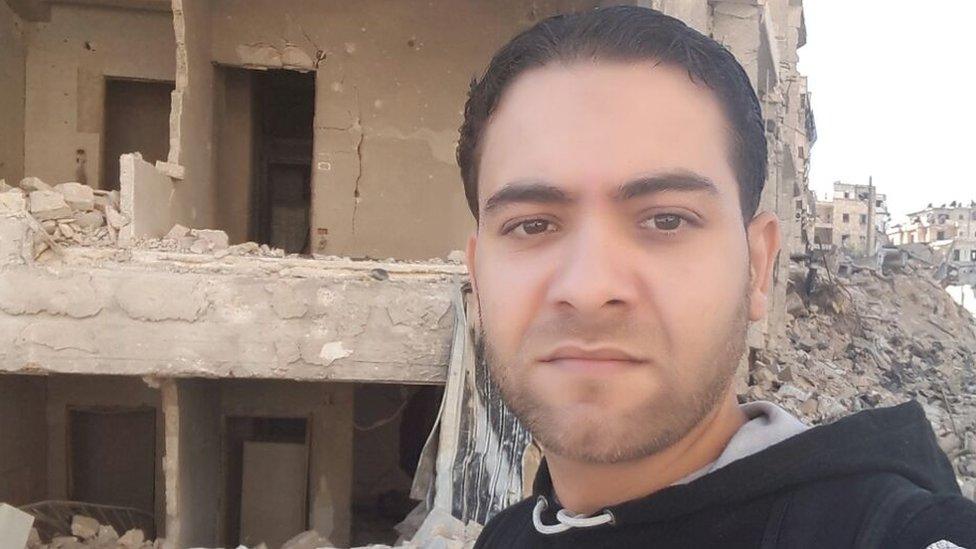
The main reason why people have not left is that they have become trapped, they told us.
"Some people left before the siege. Now no-one can leave," says Mohammed, a 31-year-old phonetics teacher at the university in Aleppo.
People have to be careful not to use up their phone batteries because there are only a few hours of electricity each day. However, they are still able to get messages to the outside world.
Dr Ossama, 32, is one of only 30 doctors left treating the 250,000 population of east Aleppo. He describes the dire situation:
"The city is under siege completely.
"No food, no electricity, no pure water, no roads out of Aleppo. The general situation is very dangerous. Every second you can be targeted by shelling or by snipers."
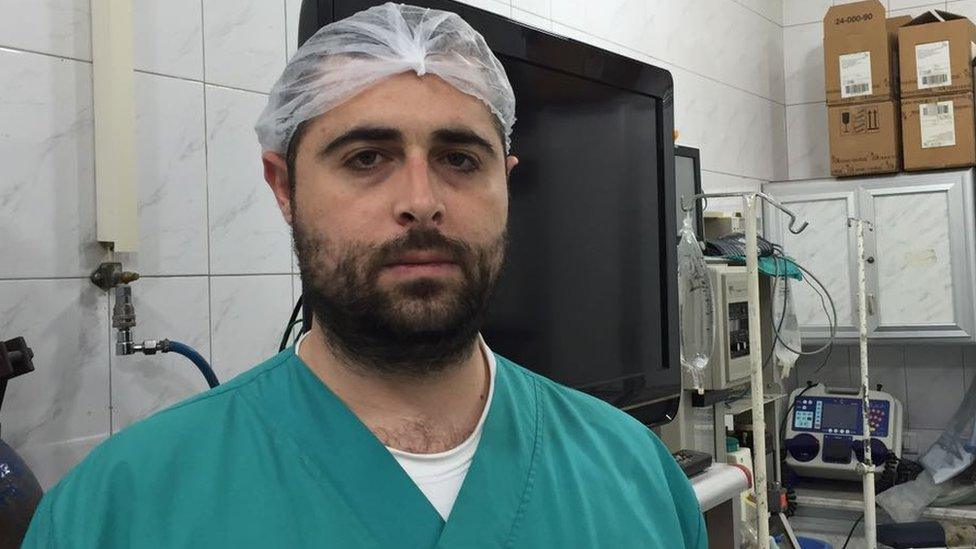
Dr Ossama is one of the last medics left in eastern Aleppo
Fatemah, 26, who is a teacher, says she never expected the siege to happen.
"All my family got out three years ago and went to Egypt and Turkey. I stayed here because I wanted to complete my studies in law at the University of Aleppo.
"We couldn't imagine we'd be under siege. We didn't think that the regime would do that. Before the siege, there was food and medicine and we had got used to the bombing. The bombing is more dangerous now."
The Syrian government and its Russian allies have periodically opened "humanitarian corridors" for civilians to leave through. There is a lot of scepticism from residents of east Aleppo over how safe these routes actually are.
"The regime lied about making humanitarian corridors," says Abdulkafi, who teaches English at the university.
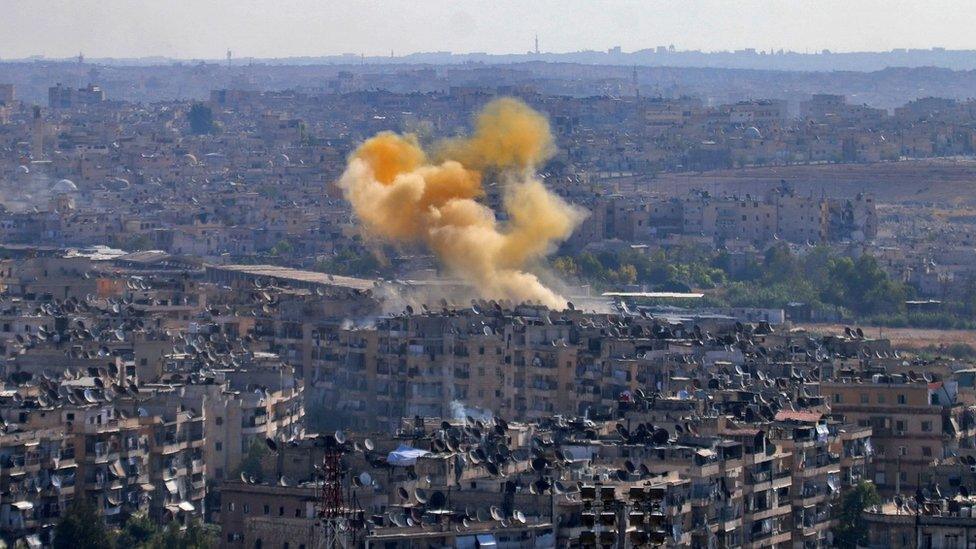
"If you were with your family, and a robber came and killed your son and daughter and then, after 10 days, he says, 'Come and be a guest in my house', would you trust him?
"[President] Assad and the Russians kill civilians and now they say, 'Come on in'. How can we do that? We prefer to eat the leaves from the trees than go back."
Abdulkafi has lived in Aleppo for three years. Before the uprising, he was a lecturer in a different town. He attended the demonstrations against President Assad.
"I was accused and ran away to Aleppo. Assad's regime considers us all terrorists. We are going to die defending ourselves. I am not a fighter but I will fight to the death."
Some in east Aleppo point out that fleeing their homes and becoming refugees would be a massive undertaking, even if they weren't trapped.
"A very important reason people are staying here is that they are very poor," says Fatemah.
"They have no money to rent a house somewhere else or to buy food, or even have the money to leave Syria for Turkey or another country."
'This is my land'
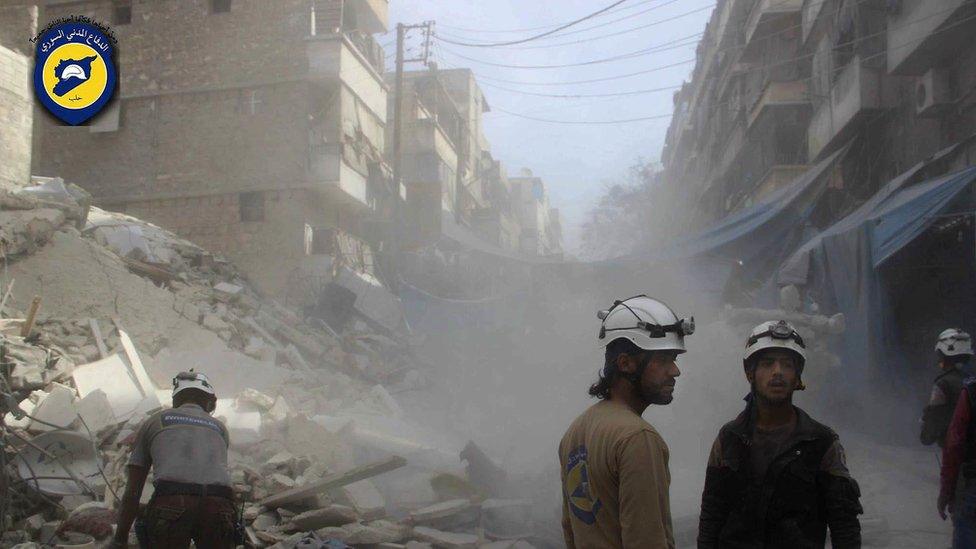
Everyone we spoke to also told us that they would continue to refuse to leave Aleppo because it was their home.
"Aleppo is my life and my country. How could I leave it?" asks Fatemah.
"The people here are civilians. They are not fighters - they just want freedom from the regime."
Mohammed adds: "This is our land and it belongs to us. Assad wants us to be kicked out of our house and is trying to displace us. People want to keep their homes. It is as clear as glass.
"My wife is seven months pregnant and it is very dangerous, especially now we are under siege.
"She is really scared and she worries that every day is the last of our lives. Her only wish is to live to see our newborn baby."
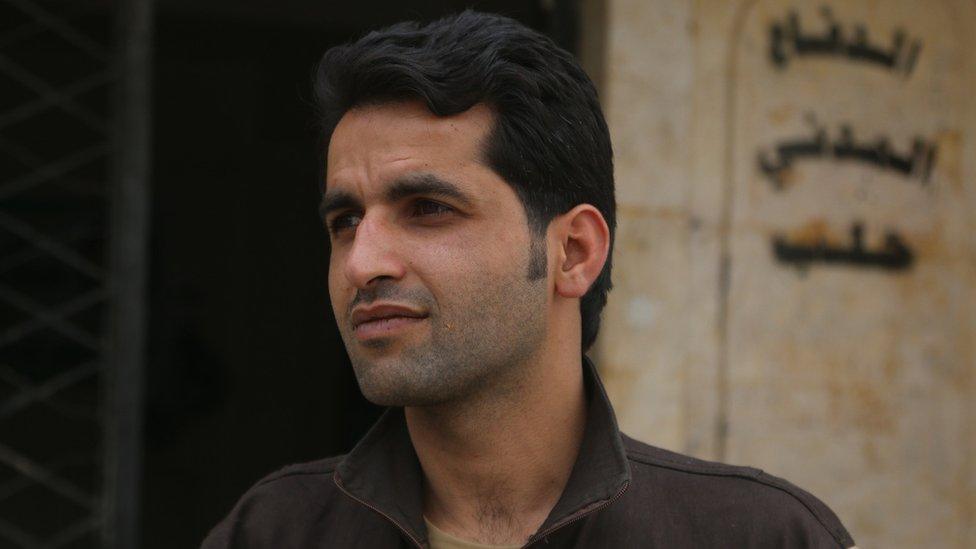
Ismail says many would prefer to die in Aleppo than to leave
Ismail is a volunteer for the White Helmets, who rescue people from sites which have been bombed. He tells us he will never leave.
"I am staying because it is my land and my city. It's my home.
"We have nothing to eat. We will run out of bread and fuel in a month. Our best hope is that the siege is broken. But we are not asking for bread or food we want freedom and social justice."
"Many people would prefer to die in Aleppo than to leave it," says Dr Ossama.
"If we go out of Aleppo we will lose our home and our home is our life… and the regime and the Russians would win."
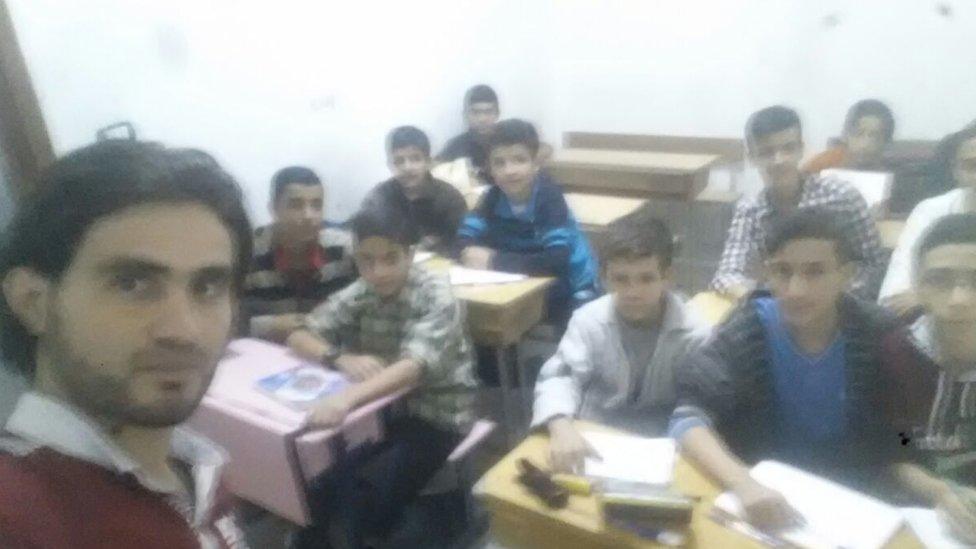
Abdulkafi with his class
We interviewed Abdulkafi while he was teaching English to children. He asked Hamad, a boy in his class if he would leave.
"No, of course I will not leave," Hamad replied. "I have lived here and I will stay. This is my land."
Like the other people we spoke to, Abdulkafi, who has an eight-month-old daughter, will stay in Aleppo, whatever happens.
"Danger is everywhere - but freedom is not everywhere.
"People stayed here because we first asked for freedom. We can't leave.
"The blood of the children who died would not forgive us. The people suffering now would not forgive us. To be free is more precious than anything on earth."
- Published23 September 2016
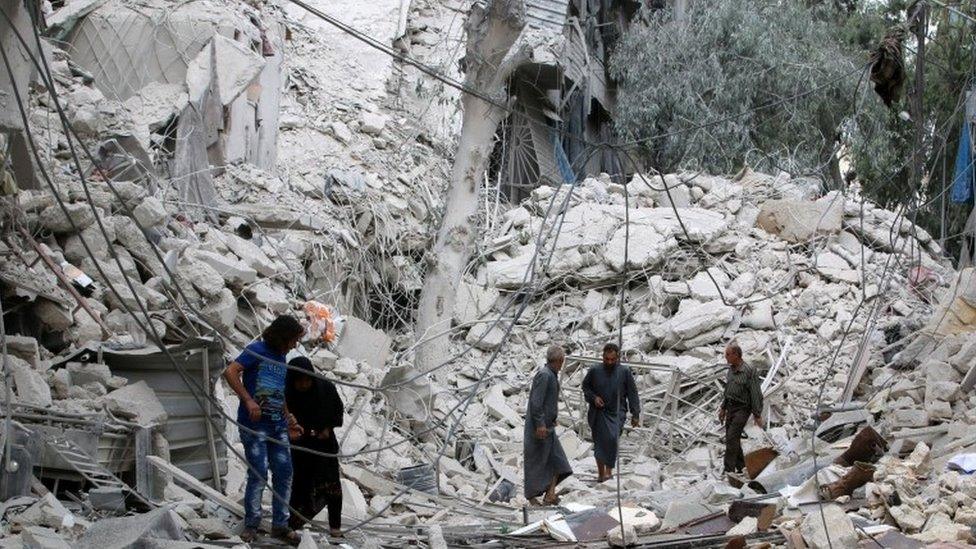
- Published6 October 2016
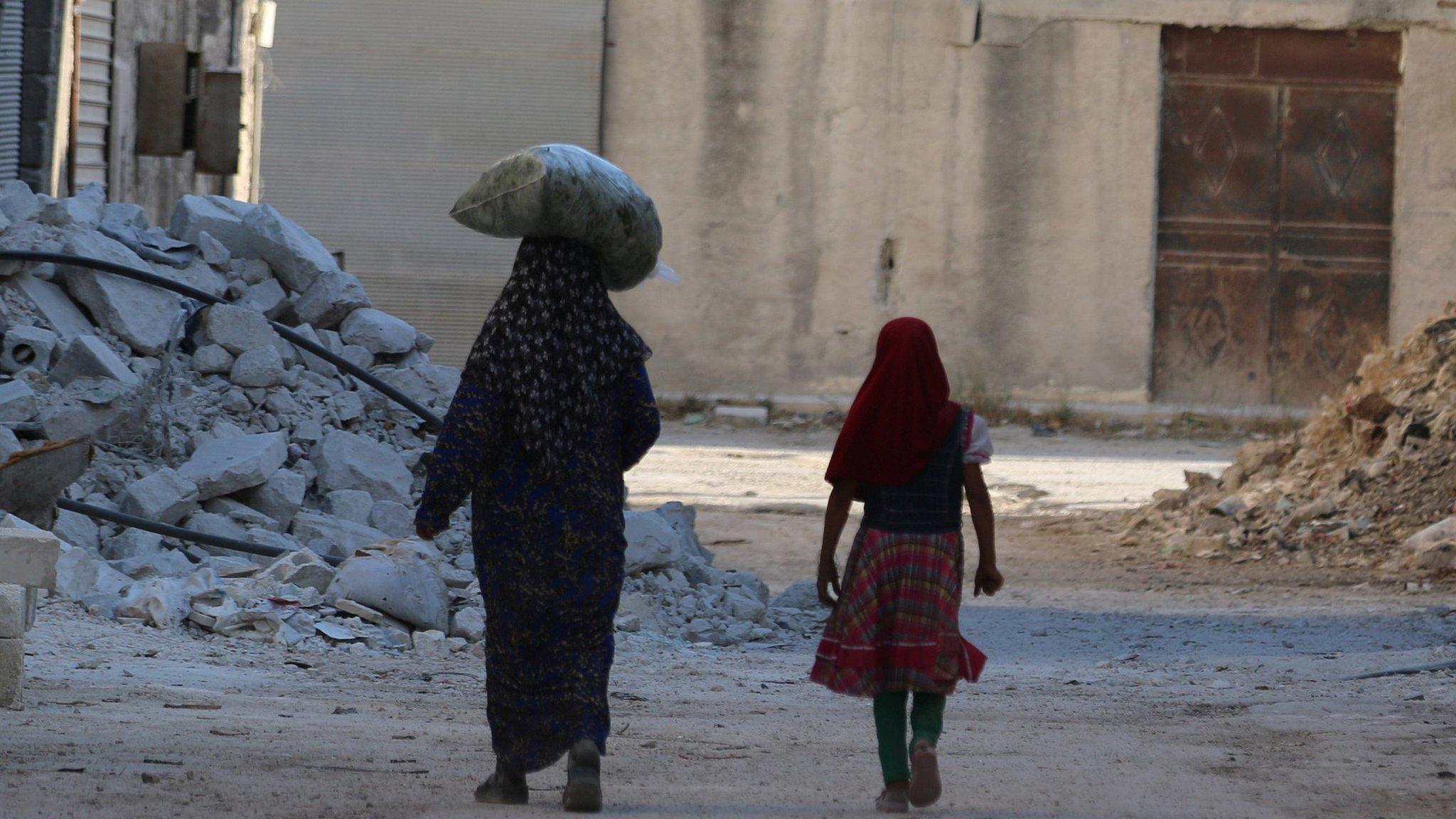
- Published26 September 2016
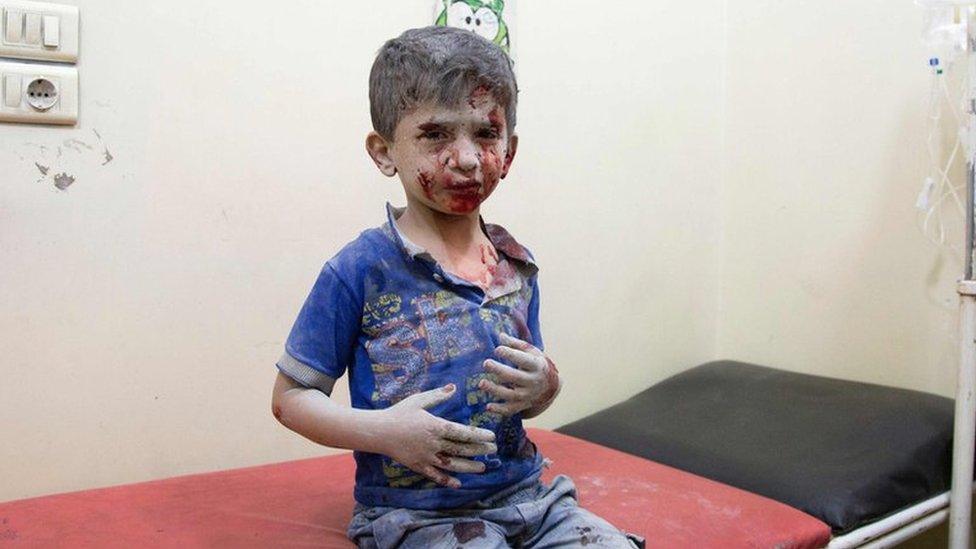
- Published1 December 2016
